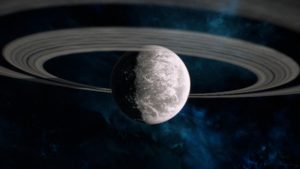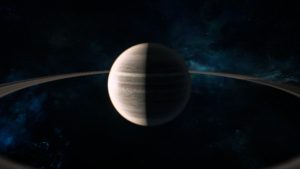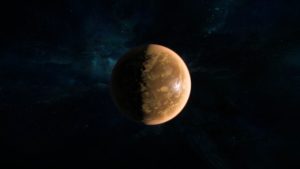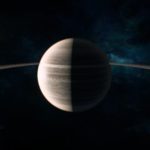System Specs:
- Stellar Mass: _ Sol-masses
- Stellar Class: _
- Luminosity: _ Sol
- Planets: 4
- Moons: 0
- Asteroid Belts: 0
- Asteroids: 0
- Objects: 1

Bosavay is a particularly energetic star. Upon arrival, Tempest helmsman Kallo Jath deploys radiation and emission screens to keep the ship’s sensors safe.
Element Zero ordinarily forms in the aftermath of a supernova. This pocket appears to be naturally occurring, but the circumstances are wrong: could the Scourge be a factor?
–
Planets Directory:
- Pas-60
- Ishang
- Tyfrondra
- Pas-51
–
Pas-60:

- Orbital Distance: 35.1 AU
- Orbital Period: 49.2 Earth-years
- Keplerian Ratio: 17.865
- Radius: 10,738 km
- Day Length: 0.10 Earth-hours
- Atmospheric Pressure: _ atm
- Surface Temp: 1,073 °C
- Surface Gravity: _ g
- Mass: _ Earth-masses
The seething radiation of the Bosavay sun keeps portions of Pas-60 molten at all times. Attempting to land here would be extremely inadvisable.
–
Ishang:

- Orbital Distance: 57.2 AU
- Orbital Period: 102.5 Earth-years
- Keplerian Ratio: 17.813
- Radius: 2,373 km
- Day Length: _ Earth-hours
- Atmospheric Pressure: 0.05 atm
- Surface Temp: 810 °C
- Surface Gravity: _ g
- Mass: _ Earth-masses
Auroral flashes are visible at most times of day from the cobalt surface of Ishang. The electromagnetic effects may interfere with communications.
–
Tyfrondra:

- Orbital Distance: 134.6 AU
- Orbital Period: 369.6 Earth-years
- Keplerian Ratio: 17.851
- Radius: 39,120 km
- Day Length: _ Earth-hours
- Atmospheric Pressure: 1.80 atm
- Surface Temp: _ °C
- Surface Gravity: _ g
- Mass: _ Earth-masses
Tyfrondra’s weather is uncommonly tranquil for a gas giant — its clouds and electrical storms move in slow, predictable patterns worthy of further study.
–
Pas-51:

- Orbital Distance: _ 76.4 AU
- Orbital Period: _ 158.0 Earth-years
- Keplerian Ratio: _ 17.863
- Radius: _ 6,959 km
- Day Length: _ 158.0 Earth-hours
- Atmospheric Pressure: _ 0.44 atm
- Surface Temp: _ 1,157 °C
- Surface Gravity: _ 0.66 g
- Mass: _ 0.78 Earth-masses
Many of the conditions on Pas-51 are amenable to the development of life (microbial at least), but its searing temperatures are an obstacle not easily overcome.
Mountain:
DATA:
- Height: 8.8 km
- Origin: Tectonic
ANALYSIS:
Water vapor escapes from cracks in this mountain, suggesting that somewhere deep underground – where temperatures are far cooler – a reservoir may exist. If lifeforms exist on Pas-51, they will be there.
–




